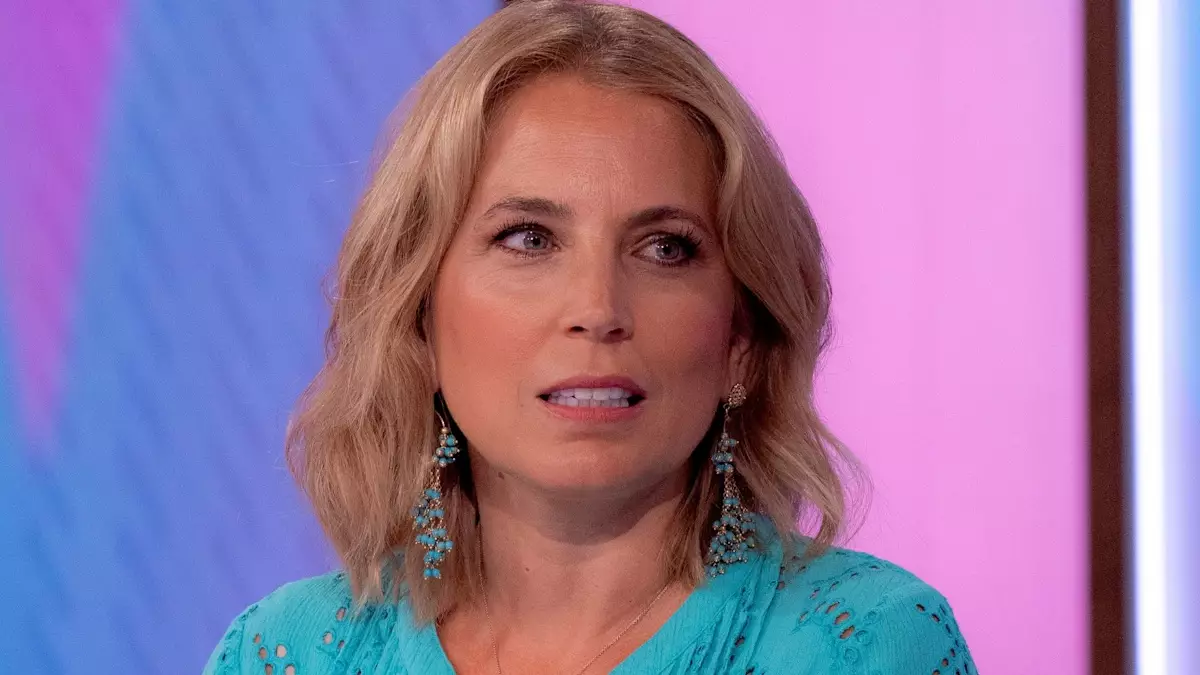Jasmine Harman, known for her role on “A Place in the Sun,” has become an unexpected beacon of conversation surrounding body image and self-esteem. In a recent post where she shared her thoughts on receiving compliments about her body, Jasmine shed light on a universal struggle: the difficulty many have in accepting praise without filtering it through a lens of self-doubt. In an age where image is often curated and filtered to perfection on social media, her candid remark can stir a dialogue about why many individuals instinctively downplay compliments.
Reflecting on her own experience, Jasmine recounted a moment where someone complimented her toned legs. Instead of graciously accepting the praise, she found herself flooded with insecurities, listing perceived flaws like varicose veins and spots she felt needed to be covered up. “NOO don’t look at my legs!” she humorously exclaimed. This stark contrast between outward appearance and internal perception poses an intriguing question: Why do compliments often feel met with resistance? The answer may lie in how we perceive ourselves compared to how we wish to be seen.
The Body Positivity Movement: A Double-Edged Sword
Jasmine’s reflections illuminate a broader narrative prevalent in the body positivity movement. While the movement encourages individuals to love and accept their bodies in all forms, societal conditioning can make this an uphill battle. We are raised in environments that often promote unrealistic beauty standards, and as a result, many feel compelled to reject compliments as a form of self-defense. Is it merely a habit influenced by culture, or is it a deeper-rooted fear that admitting to feeling good about oneself could be misconstrued as arrogance?
Jasmine sparked a conversation around this paradox, asking her followers to share how compliments make them feel. The responses she garnered highlighted a shared sense of vulnerability; many echoed her sentiments, confessing they, too, struggle to accept compliments graciously. The emotional response to compliments varies widely, where gratitude could just as easily mask insecurity.
Transformative Changes: Jasmine’s Health Journey
Jasmine’s journey is not solely about self-acceptance; it also emphasizes the importance of physical well-being. Motivated by her role that often has her in summer attire on the beach, Jasmine embarked on a lifestyle overhaul. She incorporated healthy eating, exercise, and self-care into her daily routine. Notably, she took to Zumba, a dance-based fitness program, not just for weight loss but also for enhancing her mental health.
This holistic approach to self-improvement, where one does not just strive for physical change but also seeks emotional equilibrium, positions Jasmine’s story as both relatable and inspiring. Her previous announcement about losing 20 pounds by switching to a vegan diet further demonstrates her commitment. Here, food becomes more than sustenance; it becomes a vehicle for change, facilitating a positive relationship with her body.
The Role of Community in Self-Acceptance
In sharing her narrative, Jasmine also benefited from the engagement of her online community. Many followers responded with encouragement, emphasizing unity in the shared battle against body insecurity. Comments such as “You look fab, own it!” and “You look lovely, Jasmine,” reflect the power of collective support in combating negative self-talk. Community plays a crucial role in fostering an atmosphere of acceptance and understanding, helping individuals displace their insecurities with compassion and encouragement.
Jasmine’s experience serves as an important reminder that the journey to acceptance is often non-linear, filled with setbacks and progress alike. Collectively addressing these challenges can help dismantle the long-standing societal narrative that diminishes self-worth based on appearance. With every story shared and every compliment accepted, a step is taken toward reshaping our views on body image.
In her authentic share, Jasmine not only engages her audience but also propels a movement towards self-acceptance and a healthier outlook on life. As we witness her journey, we are continually reminded that the path to body positivity is not just personal; it is a dialogue we must all be willing to engage in.

